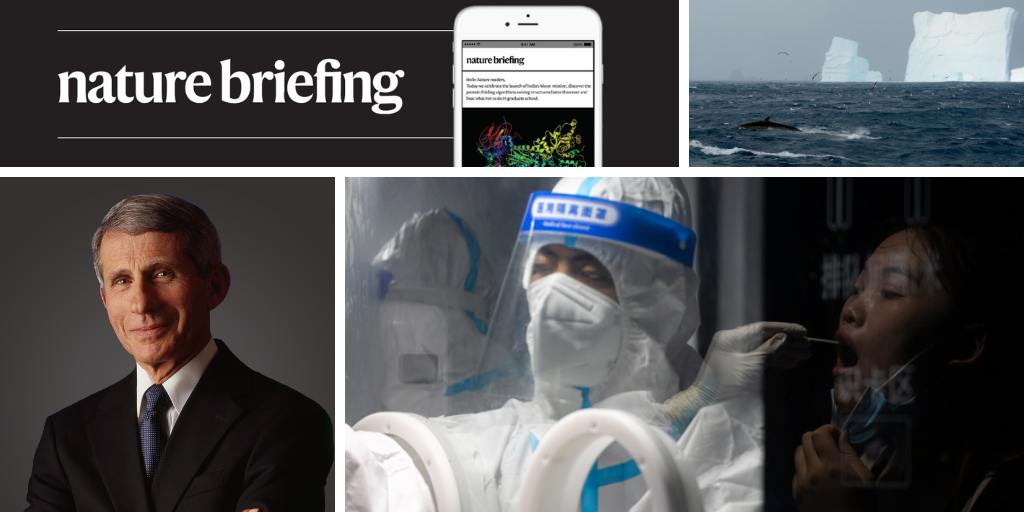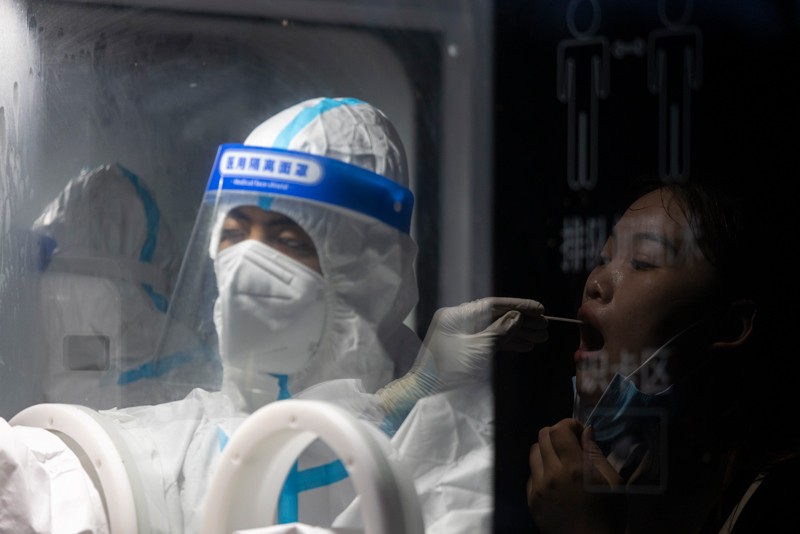Hello Nature readers, would you like to get this Briefing in your inbox free every day? Sign up here
Researchers are turning their attention towards drugs that could treat mild COVID-19. People who are unlikely to develop severe illness have no widely approved medications to ease the symptoms. “This could still be really important — to look at decreasing time spent ill,” says infectious-disease clinician Susanna Naggie. Treatments that quash infections could also limit disease spread and reduce opportunities for the virus to mutate. And drugs are often easier to distribute than vaccines, making them beneficial in places that haven’t gotten their fair share of shots.
A UK court has ruled that the country’s carbon-cutting plan is unlawful because it doesn’t explain how it will achieve its goal. The ruling came as temperatures in the United Kingdom surpassed 40 ℃ for the first time since records began. It also emerged in court that the policies in the net-zero strategy would bust the United Kingdom’s legally binding carbon budget by 5% — equivalent to almost the total annual emissions from all car travel in the country. The case was brought by campaigning groups including Friends of the Earth, ClientEarth and the Good Law Project. The judge ordered lawmakers to publish an updated strategy by the end of March 2023.
Sky News | 3 min read & BBC News | 6 min read
Huge pods of southern fin whales (Balaenoptera physalus quoyi) have been spotted feeding near Antarctica. Populations of the world’s second-largest animal are slowly recovering after industrial whaling in the twentieth century almost wiped the species out. Scientists say the congregations of up to 150 whales at their historic feeding grounds are a good sign that conservation measures are working.
Reference: Scientific Reports paper
Features & opinion
The US Department of Justice’s controversial China Initiative has been scrapped, but the anti-espionage programme still has a chilling effect on scientific cooperation between scientists in the two nations, says Jenny Lee, who studies how geopolitics shapes international collaboration. In her survey of about 2,000 scientists in the United States, she found sweeping support for stronger US–China collaboration. She urges policymakers to listen to researchers to ensure that measures brought in to protect US science don’t end up thwarting it.
Anthony Fauci, the director of the National Institute of Allergy and Infectious Diseases (NIAID) and arguably the most famous scientist in the United States, says he will step down before the country gets its next president. Fauci has served the US government for more than 50 years under seven presidents. His profile was raised by his leadership of the country’s response to COVID-19, but his true legacy, he says, lies in the area that originally led him into infectious-disease research and the NIAID director role: HIV/AIDS. That is where he achieved what he says “may be the most impactful thing I have done in my career” — the founding of the President’s Emergency Plan for AIDS Relief, a global programme estimated to have saved 21 million lives. Fauci clarified that, whenever he departs the NIAID, he’s not retiring: “I have other things that I want to do… while I still have the energy and the passion to do them,” he says.
Politico | 7 min read & The Hill | 4 min read
Evolutionary biologist Joan Strassmann shares anonymous reflections from “the very honest and brave graduate student” who discovered a problem that led to their paper being retracted. “Naturally I felt like a failure,” says the graduate student. “Here is the silver lining: I learned something, which is what science is about. I learned that the stigma I perceived was predominantly coming from my own ego. I learned how kind people could be about an honest mistake. I did the right thing, and none of the awful consequences I imagined following came to pass.”
Sociobiology blog | 7 min read
In 1979, Nobel-prizewining physicist Roger Penrose said that the two biggest unsolved problems in general relativity concerned mass and angular momentum (a measure of rotational motion). Both those properties, which are easy enough to understand in day-to-day life, spiral out of mathematical control when an object interacts with the curvy-wurvy effects of space-time within a finite region. Now both problems have been solved, thanks to a culmination of decades of work.
Reference: Advances in Theoretical and Mathematical Physics paper
In February, we invited researchers who had published a paper recently in a Nature Portfolio journal to tell the world about their research in less than one minute. As a connoisseur of super-short science summaries, I found the results surprisingly funny and delightful. It’s hard to pick a favourite, but I did laugh out loud at the scientist in a suit of armour grappling with a turnstile to illustrate iron’s challenges when entering a cell.
Let me know which science video you like best, ponder where one acquires a suit of armour at short notice, or just tell me what you think about this newsletter. Your e-mails are always welcome at [email protected].
Thanks for reading,
Flora Graham, senior editor, Nature Briefing
With contributions by Nicky Phillips








More News
Star Formation Shut Down by Multiphase Gas Outflow in a Galaxy at a Redshift of 2.45 – Nature
Garden-variety fungus is an expert at environmental clean-ups
Air-travel climate-change emissions detailed for nearly 200 nations